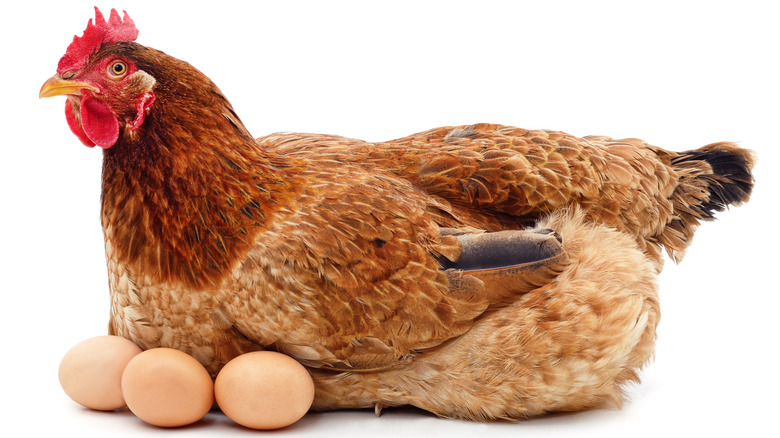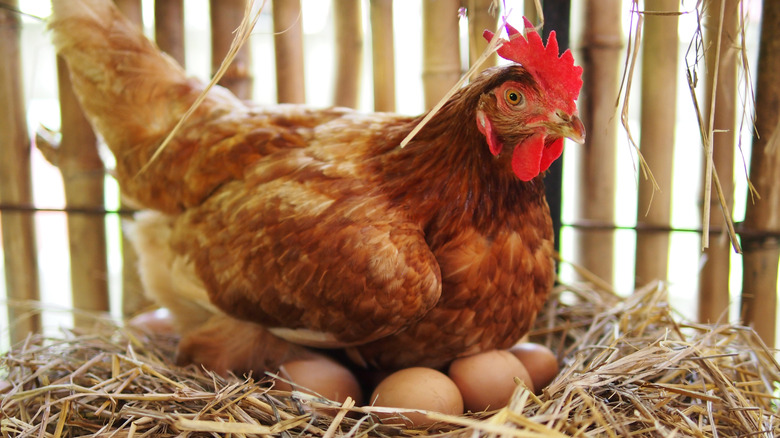The Real Reason Chickens Lay So Many Eggs
Which came first? The chicken or the egg? It's a philosophical question as old as time. Whichever it was, eggs are one of those cornerstone cooking ingredients that you'll find in almost every kitchen. You can scramble them, fry them, poach them, boil them, and if you're not careful, break them. Big or small, white, brown, or even light pink, there's an enormous number of ways to use eggs. That's probably a good thing, since chickens can lay eggs faster than you could eat them.
According to Purina Mills, an average high-producing and healthy hen can lay up to 250 eggs per year in their first year. While egg production naturally begins to decrease after the first year, younger hens are by that time brought in to help supplement this loss. The U.S. had 325 million commercial laying hens near the end of 2020, according to United Egg Producers, and that number is only 5% less than in 2019. BBC reported that nearly 62 million chickens were born worldwide each day in 2018 alone.
But why exactly do hens lay so many eggs, even when there's no way to fertilize them? What exactly is a chicken trying to do laying so many eggs that can't possibly have any chance to hatching any chicks? According to some, the goal is quite literally "quantity over quality."
Hens lay eggs to get a 'clutch'
While it's every animal's goal — including chickens — to reproduce and continue their species, the humble hen seems to have a slightly different idea in mind. The goal of the hen is to gather up a "clutch" of eggs. An average clutch has about a dozen eggs and it would appear that the chicken's goal is to lay 12 eggs, at which point they will stop laying and proceed to sit on them. This isn't just for the sheer joy of it, according to Pet Keen, as hens can go into a "broody" state — a desire to sit on and hatch their eggs — and focus on collecting a clutch of eggs in order to do just that. When a hen is in her broody stage, she will spend most of her time sitting on her eggs, with only small breaks for food and water. Furthermore, a broody hen will become incredibly defensive of her clutch, often pecking or squawking at any other chicken who comes by (via Star Milling Company).
While certain hens may not go broody at all, most chickens lay a clutch of eggs simply because they are following a biological need. Even if there are no roosters around, hens may still attempt to hatch their unfertilized eggs. To prevent this, it is recommended you remove the egg once the hen has walked away from it, preventing them from building up a clutch to sit on.

